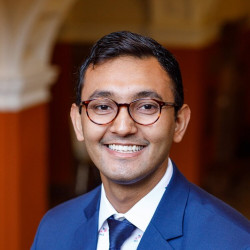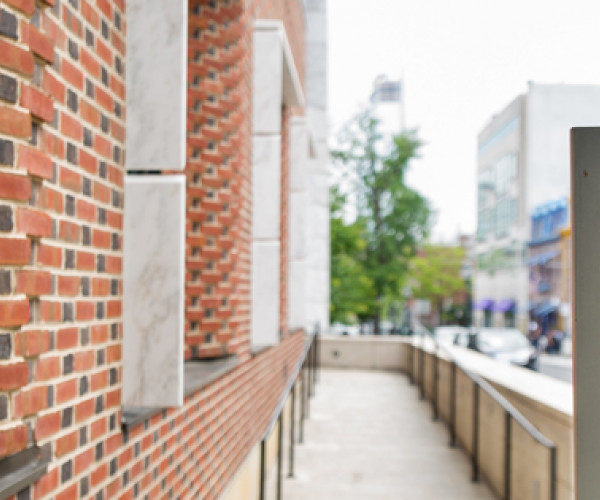Apratim Vidyarthi L’22 wins Pennsylvanians for Modern Courts Annual Law Student Writing Competition
University of Pennsylvania Carey Law School student Apratim Vidyarthi L’22 has won the 2020 Pennsylvanians for Modern Courts (PMC) writing competition. The contest carried a prize of $5,000 and was sponsored by Faegre Drinker Biddle & Reath.
 The question presented to 2L and 3L students at Pennsylvania law schools was, “Why Should Pennsylvania Focus on Increasing Diversity in its State Appellate Court Judiciary?”
The question presented to 2L and 3L students at Pennsylvania law schools was, “Why Should Pennsylvania Focus on Increasing Diversity in its State Appellate Court Judiciary?”
In his winning essay, Vidyarthi focused on the importance of those for whom legal rights “are the most meaningful,” who “often get no chance to offer their diverse interpretation of those rights.”
“It is these people,” writes Vidyarthi, “whose voices must be heard.”
Vidyarthi defines diversity as including several aspects, including demographics, socioeconomic status, and educational and subject matter diversity.
“Taken together,” he writes, “this broad notion of diversity creates a holistic and inclusive multiplicity of perspectives, helping us understand our unknown unknowns (those issues that we don’t know that we don’t know about).”
Increased diversity offers not only the advantages already thoroughly discussed by the courts – such as creating the atmosphere for a “robust exchange of ideas” – but also “facilitates cross-racial understanding, breaking racial stereotypes, improving workforce performance, improving national security, and improving civic participation,” writes Vidyarthi.
State courts, he argues, are especially important in this discussion “given that state courts are where most people will first encounter the legal system, and where many issues of liberty and justice are resolved, especially for criminal defendants.” Vidyarthi emphasizes that without adequate diversity, the legal system fails to protect many people.
“By focusing on diversity,” Vidyarthi concludes, “the state courts are not just creating a more colorful bench: they are creating a more just legal system.”
Vidyarthi said he is grateful to both Law School professors and classmates for helping him improve his essay. Specifically, he cited the influences of courses with Presidential Assistant Professor of Law Shaun Ossei-Owusu (Criminal Law), Leon Meltzer Professor of Law and Professor Philosophy Mitchell Berman (Constitutional Law), Kenneth W. Gemmill Professor of Law Seth Kreimer (Constitutional Litigation), and Senior Fellow David Rudovsky (Constitutional Criminal Procedure).
His personal background further influenced the development of his essay.
“Diversity matters a lot to me,” said Vidyarthi, “both because I’m a South Asian and international student in a profession where we are underrepresented – and need that representation given recurring issues of hate crimes, police brutality, and immigration – and because I have a science background, which I think is increasingly for broad legal issues beyond intellectual property, such as climate change, internet/technology law, healthcare, and biological issues.”
Vidyarthi, who is a native of New Delhi, India, holds a BS in Nuclear Engineering and BA in Applied Math from University of California-Berkeley and an MS in Engineering and Technology Innovation Management from Carnegie Mellon University.





